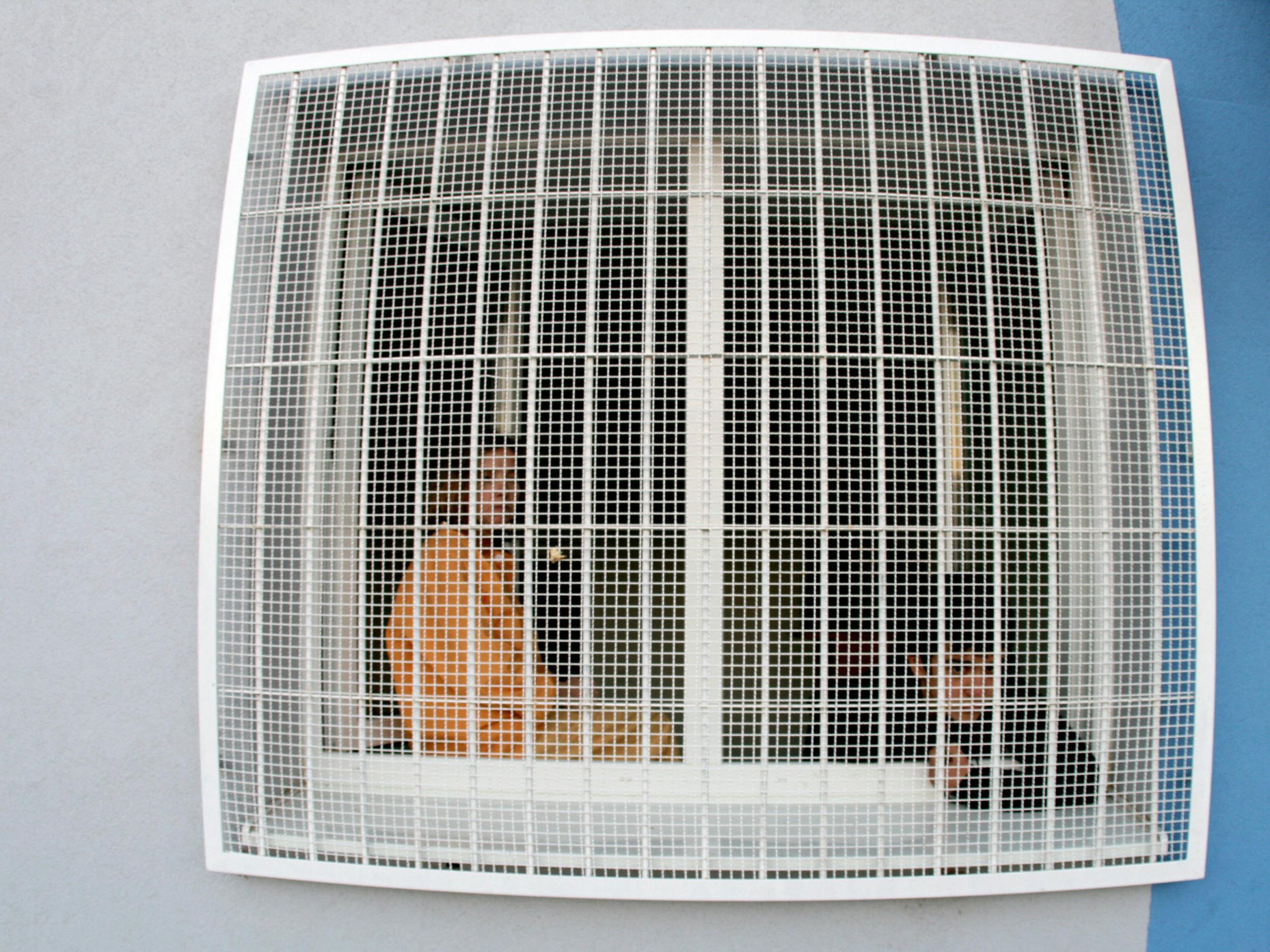Czech Republic under fire for 'stripping refugees to take their money to pay for their involuntary detention'
The Czech Republic is 'the only country routinely subjecting migrants and refugees to detention for 40 days,' said the UN High Commissioner for Human Rights

Your support helps us to tell the story
From reproductive rights to climate change to Big Tech, The Independent is on the ground when the story is developing. Whether it's investigating the financials of Elon Musk's pro-Trump PAC or producing our latest documentary, 'The A Word', which shines a light on the American women fighting for reproductive rights, we know how important it is to parse out the facts from the messaging.
At such a critical moment in US history, we need reporters on the ground. Your donation allows us to keep sending journalists to speak to both sides of the story.
The Independent is trusted by Americans across the entire political spectrum. And unlike many other quality news outlets, we choose not to lock Americans out of our reporting and analysis with paywalls. We believe quality journalism should be available to everyone, paid for by those who can afford it.
Your support makes all the difference.The Czech Republic has been fiercely criticised over its treatment of migrants and refugees, with reports that people are being detained for "administrative offences" and are being stripped naked to retrieve cash to pay for their involuntary detention.
The UN High Commissioner for Human Rights, Zeid Ra’ad Al Hussein, has urged the country to stop its detention of migrants and refugees, saying in a statement released on Thursday, that of several European countries employing restrictive policies against migrants and refugees, the Czech Republic is the only country routinely subjecting them to detention for 40 days, and reportedly, sometimes longer.
Mr Hussein said all detainees able to challenge their detention in court had been released, however most of those detained were not able to swiftly challenge their detention as they has no access to information about free legal aid.
The condition of the detention facilities also came under fire, with the Czech Republic’s own Minister of Justice, Robert Pelikán, describing conditions as “worse than in a prison”.
Mr Pelikán also said the detainees “had committed only an administrative offence, for which they should not be locked up for up to 90 days.”
A report by Czech Ombudsperson Anna Šabatová was highlighted by the High Commissioner, who said she had witnessed parents being treated in a degrading way in front of their children, at Bìlá-Jezová, a detention centre 80 km north of Prague.
At the time of her visit, Ms Šabatová said 100 children were detained at Bìlá-Jezová and the situation was a violation of the Convention on the Rights of the Child.
Mr Hussein also cited credible reports migrants and refugees have been routinely strip-searched by authorities in order to retrieve the £6.50 per day each person is charged for their involuntary stay in the detention centres.
The payment, which is demanded from all migrants, without clear legal grounds, has left many destitute upon their release, Mr Hussein said.
Mr Hussein said: “The fact that people are being forced to pay for their own detention is particularly reprehensible,”
“Many of these people are refugees who have suffered horrendously in their countries of origin as well as during their journey to the Czech Republic.
“International law is quite clear that immigration detention must be strictly a measure of last resort.
"As for children, the UN Committee on the Rights of the Child has emphasized that detention of children on the sole basis of their migration status, or that of their parents, is a violation... and is not justifiable.”
The president of the Czech Republic, Miloš Zeman, has denied the accusations. A spokesman for Mr Zeman said: “The president has long warned of the threat of Islamic fundamentalism. He stands by his opinion and he will not change it under pressure from abroad," the Guardian reports.
The Czech Republic rejected a mandatory quota for migrants as Europe, sparing with Germany and others over accepting some of the hundreds of thousands of people travelling to Europe, mostly fleeing conflict and poverty in the Middle East, Africa and Asia.
Join our commenting forum
Join thought-provoking conversations, follow other Independent readers and see their replies
Comments